Uncategorized
-
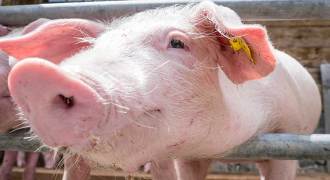 Genetics
GeneticsGene editing makes pigs safer for human transplants
CRISPR/Cas9 disables multiple viruses at one time
-
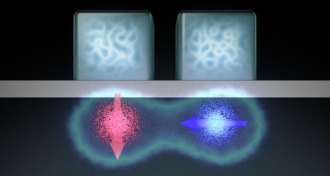 Quantum Physics
Quantum PhysicsFuture quantum computing could exploit old technology
Silicon transistors have been modified and patched together to form logic gates that could perform calculations in future quantum computers.
By Andrew Grant -
 Oceans
OceansOxygen in Black Sea has declined by more than a third since 1955
The Black Sea’s oxygen-rich surface layer shrank by more than a third from 1955 through 2013, compressing marine habitats and bringing toxic hydrogen sulfide closer to the surface.
-
 Genetics
GeneticsChemical tags on DNA appear to differ between gay and straight men
DNA marks distinguished homosexual men from heterosexual men with in a small twin study.
-
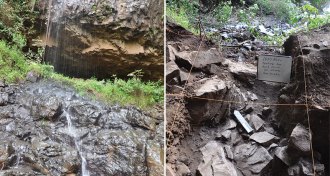 Humans
HumansInto Africa: Ancient skeleton sheds light on reverse migration
Ancient man’s DNA helps reveal extent of Eurasian farmers’ back-to-Africa migration some 3,000 years ago.
By Bruce Bower -
 Science & Society
Science & SocietyNobels note neutrinos, DNA, drugs
The Nobel Prizes in physics, chemistry and physiology or medicine ran the gamut this year, honoring both fundamental science discoveries and research with real-world impacts.
-
 Chemistry
ChemistryChemistry Nobel granted for deciphering DNA repair
Three researchers win chemistry Nobel for working out how cells fix damaged genetic material
By Meghan Rosen and Sarah Schwartz -
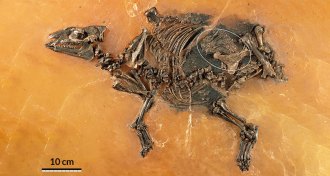 Animals
AnimalsOldest pregnant horselike fossil found
A 48-million-year-old fossil of an early horse and fetus is the oldest and best-preserved specimen of its kind.
-
 Science & Society
Science & SocietyGeneral relativity centennial celebrates Einstein’s genius
Science News uses the opportunity of the 100th anniversary of the general theory of relativity to take a deep dive into one — perhaps the most important — of Einstein’s scientific contributions.
By Eva Emerson -
 Science & Society
Science & SocietySpecial Report: Gravity’s Century
After years of pondering the interplay of space, time, matter and gravity, Einstein produced, in a single month, an utter transformation of science’s conception of the cosmos: the general theory of relativity.
-
 Quantum Physics
Quantum PhysicsEntanglement: Gravity’s long-distance connection
The universe may be a vast quantum computer that safely encodes spacetime in an elaborate web of entanglement.
By Andrew Grant -
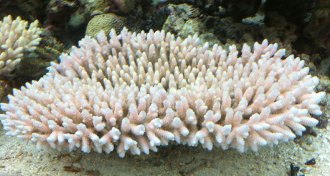 Animals
AnimalsNo eyes, no problem for color-sensing coral larvae
Switching colors of underwater light can switch preferences for where staghorn corals choose their forever homes.
By Susan Milius